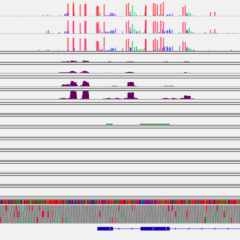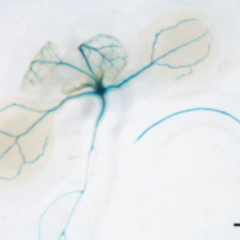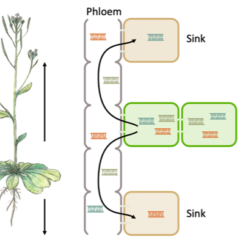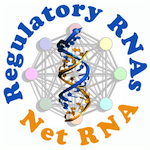Reproduction is a key step in any organism’s life cycle and its success relies on complex gene regulation. The fusion of highly specialized cells, the gametes, generate a totipotent embryo. We are studying the molecular mechanisms that regulate epigenetic marks, especially DNA methylation, transmission during sexual reproduction in the model plant Arabidopsis thaliana. As epigenetic marks can be modified by environmental factors, it is important to understand how DNA methylation is stably maintained while still allowing diversity in plants and other sexual organisms. We are also particularly interested in how small RNA molecules could act as a link between environmental stresses and transgenerational epigenetic changes.
Epigenetic dynamics during sexual reproduction

Epigenetic marks and their associated molecular pathways have been widely studied in plant somatic tissues. Our next challenge is to investigate if these mechanisms fit in a cell specific context, especially during sexual reproduction. By studying cell-specific DNA methylation and its players, we aim at establishing a spatial and temporal map of DNA methylation pathways during reproduction.



















